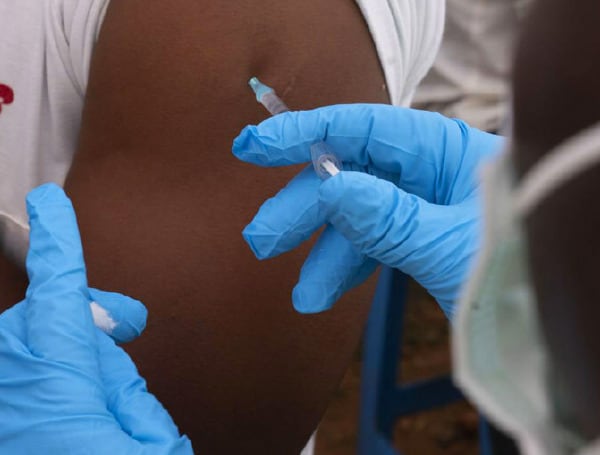- State leaders introduced a variety of creative incentives to promote the coronavirus vaccine, including material goods, cash, travel perks, free food, drinks, and even weed— but some experts are unsure that this approach works.
- The federal government has even encouraged cash incentives, but many states have offered free entrance into state parks, fishing and wildlife licenses, travel miles and hotel points, or tickets to professional sporting events and adventure parks, according to the National Governors Association.’
- “Financial incentives can help people who are already interested in a behavior like quitting smoking,” Dr. David Asch, a professor at the University of Pennsylvania’s Perelman School of Medicine and Wharton School of Business, told the Association of American Medical Colleges in an interview.
State leaders introduced a variety of creative incentives to promote the coronavirus vaccine, including material goods, cash, travel perks, free food, drinks, and even weed — but some experts are unsure that this approach works.
The most common incentives have been cash handouts through the entrance in a lottery system, visa debit cards, or college tuition credits, according to a July report from the National Governors Association (NGA).
Some states have offered free entrance into state parks, fishing and wildlife licenses, travel miles and hotel points, or tickets to professional sporting events and adventure parks, according to the NGA.
The federal government has even encouraged cash incentives.
President Joe Biden asked state, local, and U.S. territorial governments in July to issue $100 payments to every American who receives the first shot of the coronavirus vaccine, according to Reuters. The funds would come out of the $350 billion available in the American Rescue Plan Act, the Treasury Department said in a statement on July 29.
Other states have introduced clever awards to those who take the shot.
States including Connecticut, Louisiana, and New Jersey have offered free alcohol shots and beers to residents who have received the first round of vaccines, according to the NGA report.
The state of Washington, where recreational marijuana use is legal, awarded free joints to vaccinated adults through its Joints for Jabs campaign in June.
Vaccinated residents in Guam were eligible to win one of six cars while Alabama offered immunized residents the opportunity to drive their motor vehicle on the Talladega speedway, the NGA said
Wisconsin awarded residents cream puffs, while Indiana gifted citizens Girls Scout cookies. Krispy Kreme Doughnuts offered Americans free doughnuts after they showed their proof vaccination.
The more luxury incentives include the chance to win an iPad or a $25,000 college scholarship when vaccinated at a District of Columbia Public School (DCPS). Kids vaccinated at one of three D.C. public schools can receive a $51 visa card, while the first 400 can swap the cash for Apple AirPods, according to a July 29 statement from Mayor Muriel Bowser.
Federal and state leaders have ramped up vaccine incentives as delta variant cases surge, but some experts aren’t sure that this is the best approach.
“Financial incentives can help people who are already interested in a behavior like quitting smoking,” Dr. David Asch, a professor at the University of Pennsylvania’s Perelman School of Medicine and Wharton School of Business, told the Association of American Medical Colleges in an interview.
“But if someone really doesn’t want to get vaccinated, I’m not sure there’s an amount of money we’d be willing to offer that would also work,” Asch added.
Asch sees social norming, making the vaccine a regular and socially accepted part of life, and loss aversion, where missing out on the vaccine is more severe than receiving it, as a more productive method for mass immunization.
Conveying the message as “don’t miss out on your COVID-19 vaccine” is more motivating than “Get a COVID-19 vaccine to protect yourself,” Asch explained in the interview.
Kevin Schulman, a professor of medicine and economics and Stanford University’s School of Medicine and Graduate School of Business, recommended local and state governments should focus on marketing campaigns for the vaccines rather than prizes and incentives, according to a report in the New England Journal of Medicine he co-authored.
“It’s clear that we will need myriad communication strategies to ensure widespread vaccine uptake,” he said.
The marketing campaigns should target individuals who are against receiving the vaccine rather than those who take the shot, Schulman told ABC news.
“I would go back to those lottery states and ask how much did you spend on the lottery and how much could you have spent on Facebook ads that could appeal to those populations,” Schulman said.
Content created by The Daily Caller News Foundation is available without charge to any eligible news publisher that can provide a large audience. For licensing opportunities of our original content, please contact licensing@dailycallernewsfoundation.org.
Support journalism by clicking here to our GoFundMe or sign up for our free newsletter by clicking here
Android Users, Click Here To Download The Free Press App And Never Miss A Story. It’s Free And Coming To Apple Users Soon
